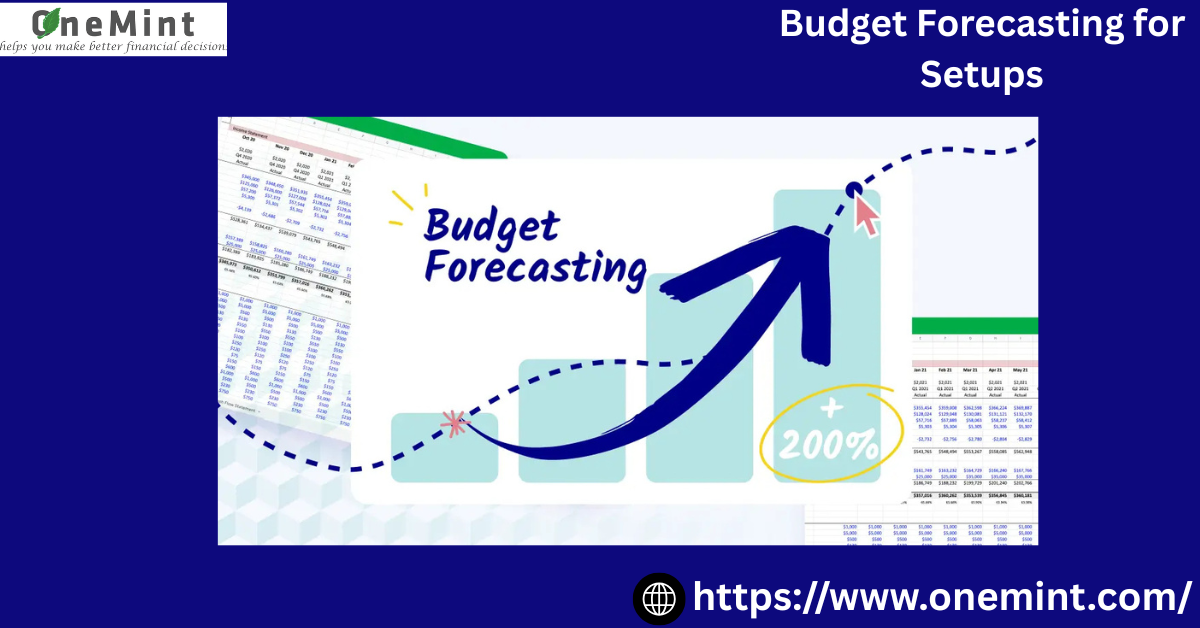Budget Forecasting for Setups

Introduction of Budget Forecasting for Setups :-
Budget forecasting is one of the most critical aspects of managing a startup. Without a well-structured forecast, startups may struggle with financial uncertainty, cash shortages, or ineffective resource allocation. A solid budget forecast helps ensure a startup’s sustainability and growth.
What is Budget Forecasting?
Budget forecasting involves estimating future revenues and expenses to help businesses make informed financial decisions. While budgeting sets financial limits, forecasting predicts future financial trends based on data and assumptions.
Why is Budget Forecasting Crucial for Startups?
- Ensures better financial management.
- Helps startups avoid running out of cash.
- Builds investor confidence by demonstrating financial clarity.
Key Components of Budget Forecasting
- Revenue Projections – Estimating how much money the business will earn.
- Expense Estimation – Calculating fixed and variable costs.
- Cash Flow Analysis – Understanding money movement.
- Contingency Planning – Preparing for unexpected financial events.
How to Create a Budget Forecast
- Define financial objectives.
- Identify revenue sources (product sales, services, investments).
- List operating expenses and unexpected costs.
- Utilize past data and market trends to predict future numbers.
Types of Budget Forecasting Methods
- Static Budgeting – A fixed budget that doesn’t change over time.
- Rolling Forecasting – Continuously updating the budget based on real-time data.
- Zero-Based Budgeting – Every budget cycle starts from scratch.
- Incremental Budgeting – Adjusting last year’s budget for the next year.
Tools for Budget Forecasting
- Accounting Software: QuickBooks, Xero
- Spreadsheet Tools: Excel, Google Sheets
- AI & Data Analytics: AI-driven forecasting platforms
Common Budgeting Mistakes Startups Make
- Overestimating revenue potential.
- Failing to account for operational expenses.
- Ignoring cash flow cycles.
- No backup plan for financial downturns.
Cash Flow Management in Budget Forecasting
To ensure financial stability, startups must:
- Track cash inflows and outflows consistently.
- Plan for revenue fluctuations.
- Maintain an emergency fund.
Investor Expectations and Budget Forecasting
Investors look for well-documented budget forecasts when considering funding a startup. A clear financial plan demonstrates the business’s sustainability and growth potential.
Adjusting Budgets Based on Market Conditions
Market trends and economic shifts can impact financial projections. Regularly updating budget forecasts ensures a startup remains adaptable.
Long-Term vs. Short-Term Budget Forecasting
- Long-term forecasting helps in strategic planning and scaling.
- Short-term forecasting enables day-to-day operational adjustments.
How to Improve Budget Forecasting Accuracy
- Regularly analyze and revise financial data.
- Use multiple forecasting models to validate predictions.
Case Studies of Successful Startup Budgeting
Many startups succeed by implementing strong budgeting strategies. For example:
- A tech startup reduced financial risks by using rolling forecasts.
- An e-commerce business adjusted inventory budgets based on seasonal trends.
